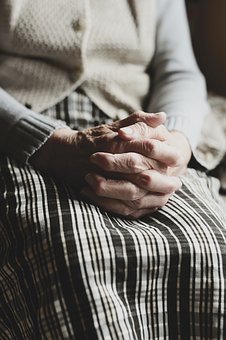Positive words linked to positive outcomes as we grow older

Aging is often associated with unpleasant side effects: achy joints, forgetfulness, limited mobility. But one technique that has proven to make a difference and improve the lived experience of growing older is “positivity”. Psychologist Becca Levy studies the correlation between attitudes towards aging and symptoms of seniority and has found that positivity is linked to improved emotional and even physical wellbeing in those over 65.
In her research, Levy subliminally exposed subjects to either negative words, such as “decline” and “decrepit” or positive words, such as “sage” and “accomplished.” After only a few weeks, the patients given positive reinforcement experienced better physical health in comparison to those in the negative or neutral test groups.
On a larger scale, this theory applies to how we view the elderly in general. Ageism, or negative prejudice towards the aging, is especially prevalent in Western cultures where we tend to see our elders as less competent. These negative attitudes about aging are pervasive, and as we ourselves age, we apply these stereotypes to ourselves as well, leading to more negative outcomes. Changing the narrative to use more positive associations with aging has tangible benefits to both the youngsters and the elders in our midst.
It will come as no surprise to readers of the Optimist Daily, but the words we use to describe ourselves, or people around us, can have either positive or deleterious effects. This article was shared with us by an Optimist Emissary, and despite being a few weeks old, we thought it was good enough to share! READ MORE
Aloe Cadabra – each tube is carefully filled over 95% Full of Organic Aloe Vera to moisturize and sooth.
Moisturize
Lubricate
Replenish



 Scientists have discovered an inverse relationship between loneliness and wisdom
Scientists have discovered an inverse relationship between loneliness and wisdom